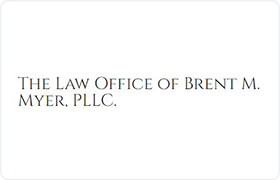Stuart Reorganization Lawyer, Florida
Sponsored Law Firm
-
 x
x

Click For More Info:
-
Law Office of Brent M. Myer, PLLC
27 SE Ocean Blvd Stuart, FL 34994» view mapBankruptcy & Debt Your Local Bankruptcy Attorney
Brent M. Myer has over 15 years of consumer bankruptcy experience and has represented both debtors and creditors in the past.
772-873-7794
Not enough matches for Stuart Reorganization lawyer.
Below are all Stuart Bankruptcy & Debt lawyers.
Cristina Maria Rubio
Commercial Real Estate, Divorce, Bankruptcy, Bankruptcy & Debt
Status: In Good Standing Licensed: 27 Years
Randall Anthony Fischer
Environmental Law Other, Civil Rights, Corporate, Bankruptcy
Status: In Good Standing
Audra Robin Creech
Litigation, State and Local, Employee Rights, Corporate, Credit & Debt
Status: In Good Standing Licensed: 9 Years
Scott W Turnbull
Contract, Credit & Debt, Civil Rights, Trusts
Status: In Good Standing Licensed: 18 Years
Barbara A Cook
Lawsuit & Dispute, Admiralty & Maritime, Industry Specialties, Bankruptcy
Status: In Good Standing Licensed: 29 Years
John J Anastasio
DUI-DWI, Construction, Natural Resources, Divorce, Bankruptcy
Status: In Good Standing Licensed: 37 Years
John Walter Chapman
State and Local, Workers' Compensation, Insurance, Bankruptcy, Personal Injury
Status: In Good Standing Licensed: 25 Years
 Brent Myer Stuart, FL
Brent Myer Stuart, FL Practice AreasExpertise
Practice AreasExpertise